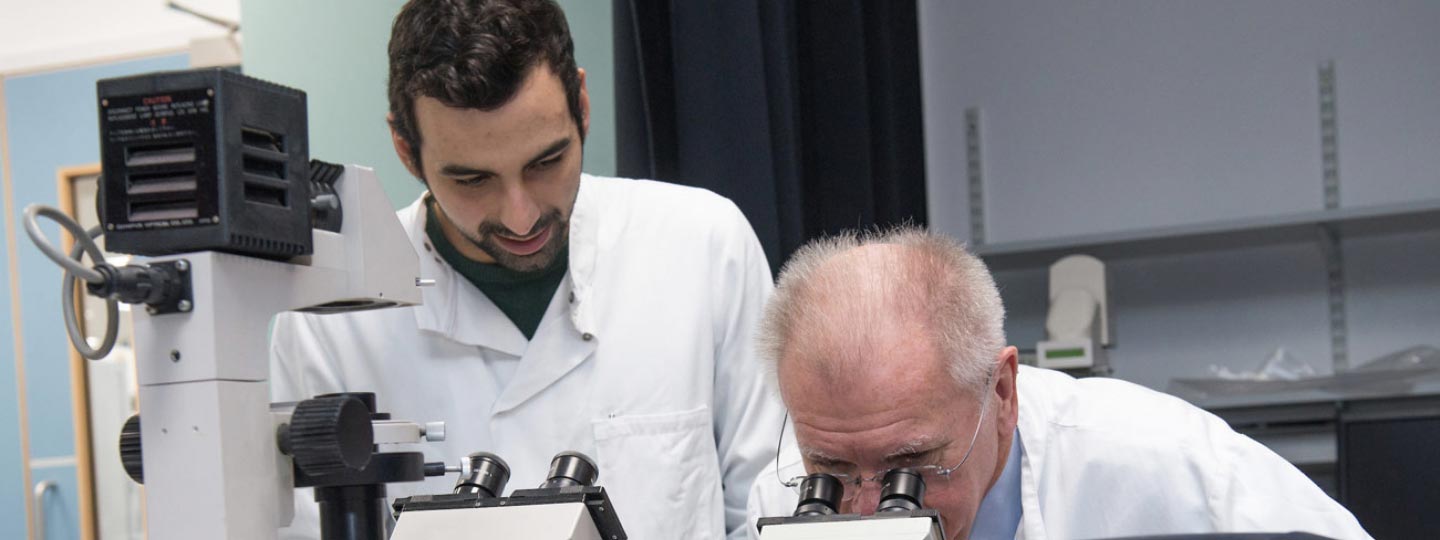Researchers launch new study to tackle chronic pain in arthritis
18 December 2020
PhD student, Michele Fresneda Alarcon based at the University of Liverpool’s Institute of Ageing and Chronic Disease Centre, was awarded the very first Versus Arthritis and Masonic Charitable Foundation PhD Scholarship
Michele is working alongside Dr Helen Wright, Dr Marie Phelan and Prof Robert Moots to find a new way to switch off the chronic pain experienced by people living with rheumatoid arthritis, by reprogramming cells in the body that cause inflammation.
What does this mean for people with arthritis?
The team are keen to develop a greater understanding of these chemical processes, in order to identify a new way to switch off or better regulate the harmful inflammation seen in patients with rheumatoid arthritis.
The researchers are attempting to re-programme a type of white blood cell, called neutrophils, which are involved in the body’s natural healing processes but behave differently in people with rheumatoid arthritis.
This study may allow the researchers to identify new treatments that reduce joint damage and improve mobility and bring hope to people with rheumatoid arthritis who have had little or no success with current analgesia and treatments.
Read more about the aims of Michele’s research.
Meet the researcher
Michele spoke to us about what inspires him and his passion for helping to provide better treatments for people living with rheumatoid arthritis.
Tell us a bit about your background and research?
I studied Biomedical Science at Liverpool John Moores University as an undergraduate where I started developing an interest in immunology, initially in the context of cancer.
This spurred me into continuing to work in the research sector by completing a MSc in Cancer Biology and Therapy at the University of Central Lancashire. Then I worked as a scientific officer with Cancer Research UK’s Manchester institute.
What are your research highlights to date?
There are many highlights of my first year as a PhD candidate, from learning many techniques which I will need for my laboratory research, to starting experiments and liaising with other researchers at the British Society for Immunology.
It’s still too early to have significant results from the research, but we hope to uncover mechanisms that can be used to benefit people with rheumatoid arthritis in the future.
I really valued the opportunity to speak with patients suffering from rheumatoid arthritis, to learn first-hand about the challenges of living with this disease.
What are your plans for the future?
I want to complete my PhD successfully and continue to work as a researcher, which is hard work but something that I am starting to enjoy greatly.
The fellowship has given me the opportunity to continue with my career, to learn from patients, clinicians and researchers and how all of them are important for the delivery of quality research.
Do you have any advice that you would give to other researchers?
I would encourage scientists to continue pursuing their research goals. Science is not a sprint, it’s a marathon with many turns and unexpected results.
There will be good and hard times but also great and amazing lasting connections that can shape the future of research and patients suffering from arthritis and other diseases.
We’re here for you
- If you would like to talk to someone, you can call our free helpline on 0800 5200 520
- Chat to our Arthritis Virtual Assistant.
- Join our online community.
- Stay in touch and follow us on Twitter, Facebook and Instagram.